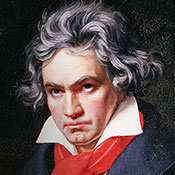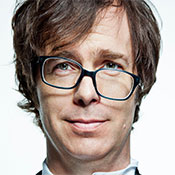A LOOK AT THE 2019.20 CLASSICS SEASON – And Beyond – With Music Director Ken-David Masur
DAVID LEWELLEN
PUBLISHED
Tagged Under: 2019.20 Season, Classics, Conductor, Grand Theater
Milwaukee Symphony concertgoers have had time to look over the 2019.20 season schedule by now, but Ken-David Masur is thinking longer term.
Masur, the symphony’s new music director, will conduct eight of the 18 classical subscription concerts in the new season and helped plan the rest. But he is already working on 2020.21, the first season in the Warner Grand Theater, and beyond. “We have a wish list for a trilogy of seasons,” Masur said, and he is poring over the database of past performances, thinking about pieces that he wants to have a chance to conduct with the MSO.
The 2019.20 season will be performed partly in the Pabst Theater, due to the limited availability of Uihlein Hall before the symphony moves out altogether, as Warner Grand renovations continue. “I’m very giddy to get in there when the stage is set and have a sound check,” Masur said. The first season will be a learning process, but Masur said that the symphony plans to commission new works for performance in the new space.
New music is important to Masur; seven of his eight programs next season feature work by a composer who is alive or recently deceased. “I absolutely hope that relations between the orchestra and audiences will have a level of trust” that every concert is worth their time and money, Masur said – including the orchestra’s commitment to new music, so that commissions “will be met with anticipation and enthusiasm, not with suspicion or simple tolerance.”
Masur spoke enthusiastically about the three-week festival of Russian composers in January, for which he will conduct Mussorgsky’s Pictures at an Exhibition. Originally written for piano, that piece is beloved in the United States, but almost always in Maurice Ravel’s orchestration. Masur, however, will lead an arrangement by Sergei Gorchakov, which was preferred by his late father, Kurt Masur, former music director of the Leipzig Gewandhaus Orchestra and the New York Philharmonic. “It’s a Russian orchestrating a Russian, and it has a very thick texture when needed,” Masur said.
That concert will also feature (K)ein Sommernachtstraum, or “(Not) A Midsummer Night’s Dream,” by Alfred Schnittke, a Georgian composer whom Masur knew and whose funeral in Moscow he vividly remembers. “I had wonderful conversations with him,” he said. “This is very personal to me.”
The classical world will be celebrating Ludwig van Beethoven’s 250th birthday in 2020, and the MSO has scheduled the master’s first six symphonies for next season. It would not be a stretch to assume that nos. 7, 8 and 9 will be performed the following season in the new hall. That arrangement was not totally deliberate, but Masur and Bret Dorhout, the MSO’s vice president of planning and operations, were thinking of an arc for the whole season as well as individual concerts. It does build a sense of “creating a journey and asking people to come along,” he said, and in the new hall, “the journey ends with a new beginning.”
Aside from planning seasons, another new responsibility for Masur will be choosing new musicians. “The Milwaukee Symphony is an extraordinary group of musicians, both technically and stylistically,” Masur said, and he praised the hires of music director laureate Edo de Waart over the past ten years. For coming openings, “I hope we have a fantastic pool,” Masur said. “I tell young musicians that I meet, in Tanglewood or Chicago or Europe, to consider coming to join the Milwaukee Symphony.” Because of the new hall and the lengthening season (it will expand from 40 weeks to 42 weeks by 2021.22), the MSO should be seen as an increasingly attractive job.
For future seasons, “we always have a drawer full of ideas,” Masur said. Having grown up in Leipzig, he feels a connection to the many composers who lived there: Bach, Mendelssohn, Schumann, Wagner, and more. Masur has a long history with Bach in particular, and some of that composer’s choral masterworks might well appear on the Warner Grand stage.
But he is thinking bigger than simply symphony orchestra programming in a downtown concert hall. The building itself is more than its concert space; it can host art exhibits or panel discussions, and it can extend its reach to other organizations.
“I want to connect in relevant ways to the audience,” Masur said, “but we have to get everyone on board with these feelings.” He has told Dorhout and executive director Mark Niehaus that he wants to meet as many Milwaukee arts leaders as possible, “and find out who is interested in new programs that we are equipped to help realize.”
In Milwaukee, “I want to learn what the jazz scene is like, what the new music scene is like, what the chamber music scene is like,” Masur said. “I want to learn what Milwaukee’s DNA is and where we can contribute.” Doing a lot of listening before making any announcements means that he should get an idea of what will work and what won’t. “My mindset is a great level of curiosity and anticipation. I look forward to knowing the city and its people, and finding where our music and art form will hit a nerve. I’m always inviting people I’ve met, from around the world, to come and see.”



